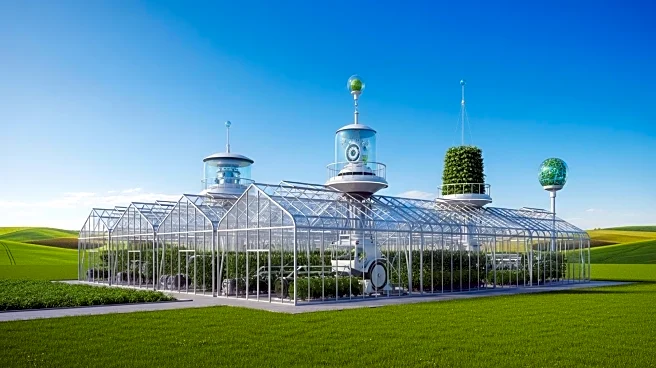What's Happening?
The University of Leeds farm is participating in a project to research and test methods for reducing agricultural emissions, aiming to cut the farm's carbon footprint by 55% over five years. The project, part of the Climate Smart Research initiative, involves 33 partners from 26 European countries. It will explore solutions like managing emissions from manure and slurry and using hedgerows to prevent greenhouse gases from entering the atmosphere. The research is funded by the Horizon Europe programme and aims to provide environmentally and economically viable options for farmers.
Why It's Important?
This initiative is crucial for advancing climate-smart agriculture, offering evidence-based solutions to reduce emissions and enhance sustainability in farming. By developing and testing innovative methods, the project aims to support the transition towards climate-neutral agriculture, addressing the urgent need to mitigate climate change impacts. The research conducted at the University of Leeds farm can provide valuable insights and practices that can be adopted by farmers across Europe, promoting sustainable agricultural practices and contributing to global efforts to combat climate change.
What's Next?
The project will continue to develop and test solutions over the next five years, with findings shared among participating farms across Europe. As research progresses, it may lead to the adoption of new practices and technologies that enhance sustainability in agriculture. The focus will be on building a robust evidence base to support farms in reducing emissions and improving environmental resilience. Collaboration among research institutions and farms will be key in driving innovation and promoting climate-smart agriculture.









